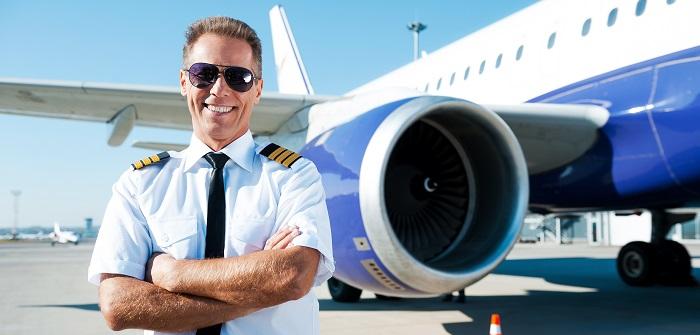A pilot has died after a small aircraft carrying nearly 200 kilograms of cocaine branded with SpaceX logos crashed in a remote area of Brazil. Authorities were alerted following the crash, which occurred in a scarcely populated region, prompting an investigation into the origin and destination of the illicit cargo. The incident highlights ongoing challenges in combating drug trafficking through aerial routes in South America.
Pilot Dies in Remote Brazil Plane Crash Amid Massive Seizure of SpaceX Branded Cocaine
Authorities in Brazil are investigating a tragic plane crash in a remote region that claimed the life of the pilot and led to the seizure of an unprecedented cargo of cocaine stamped with the SpaceX logo. The aircraft was found wrecked deep within the Amazon rainforest, containing nearly 200 kilograms of cocaine, signaling a sophisticated attempt by drug traffickers to use high-profile branding as a means of evasion or psychological impact. Officials believe this marks one of the largest hauls involving branded narcotics to date in the region, raising concerns about growing innovation within drug smuggling networks.
Details gathered from the crash site reveal:
- Location: Isolated area near the border of Amazonas state
- Cocaine Weight: Approximately 198 kg
- Branding: SpaceX logos clearly marked on multiple packages
- Victim: The pilot was found deceased at the scene
- Investigation: Ongoing cooperation between Brazilian military and federal police
| Aspect | Details |
|---|---|
| Cargo Type | Illicit narcotics |
| Estimated Market Value | $10 million USD |
| Crash Time | Early morning hours |
| Response | Rescue teams alerted, but no survivors |
Investigating the Link Between High-Tech Drug Trafficking and Aviation Safety Risks
The recent crash involving a small aircraft transporting nearly 200kg of SpaceX-branded cocaine in a remote region of Brazil has highlighted a troubling intersection between high-tech drug trafficking and aviation safety hazards. Smugglers are increasingly utilizing advanced technologies, including sophisticated navigation systems and unmarked drones, to evade law enforcement and efficiently move illicit cargo across vast, often inaccessible terrains. While this innovation enhances traffickers’ operational capabilities, it simultaneously amplifies risks to pilots who often operate under extreme pressure, in poorly maintained aircraft, and beyond regulated airspace – conditions that can culminate in fatal accidents.
Authorities face a complex challenge balancing interdiction efforts with aviation safety enforcement. The illicit use of technology like satellite GPS trackers and encrypted communication tools enables traffickers to chart clandestine routes, complicating traditional aerial surveillance. Key risk factors contributing to incidents include:
- Overloaded aircraft with hazardous substances impacting flight stability.
- Unlicensed or inexperienced pilots compelled to fly in unsafe conditions.
- Remote crash sites delaying emergency response and investigations.
| Risk Factor | Impact on Aviation Safety |
|---|---|
| High-tech Navigation Systems | Increased evasion, higher flight risks |
| Pilot Fatigue & Pressure | Dropping reaction times, errors |
| Illegal Payload Weight | Reduced aircraft maneuverability |
Calls for Enhanced Surveillance and Stricter Regulations on Cargo Flights in Remote Regions
The recent tragedy involving the crash of a small cargo plane carrying an illicit payload highlights glaring vulnerabilities in the oversight of aerial operations in remote territories. Aviation experts and local authorities alike are urging for a rigorous overhaul of monitoring systems to prevent such catastrophic incidents. With difficult terrain and limited communication infrastructure, these regions have become perilous zones where unregulated private flights can easily evade detection, often transporting contraband or unauthorized cargo. The incident has reignited debates on the urgent need for advanced radar coverage and mandatory flight tracking technologies for all cargo aircraft operating beyond urban airspace.
Advocates have outlined several key measures to fortify security and accountability for cargo flights in isolated areas:
- Mandatory real-time flight data transmission linked to national air traffic control centers.
- Stringent licensing requirements for cargo operators serving remote regions.
- Regular audits and random inspections of aircraft and cargo manifests.
- Inter-agency cooperation between aviation authorities and law enforcement to track irregular operations.
| Proposed Regulation | Expected Impact |
|---|---|
| Flight Tracking Devices | Immediate detection of unauthorized flights |
| Operator Licensing Enhancements | Improved accountability and reduced black-market activity |
| Random Cargo Inspections | Deterrence of illegal cargo transport |
Concluding Remarks
The tragic incident underscores the growing challenges faced by authorities in combating illicit drug trafficking operations that exploit remote regions. As investigations continue, officials are seeking to unravel the full scope of the operation behind the SpaceX-branded cocaine shipment. The pilot’s death adds a somber note to a case that highlights the complex intersections between crime, aviation, and international drug enforcement efforts in Brazil.




